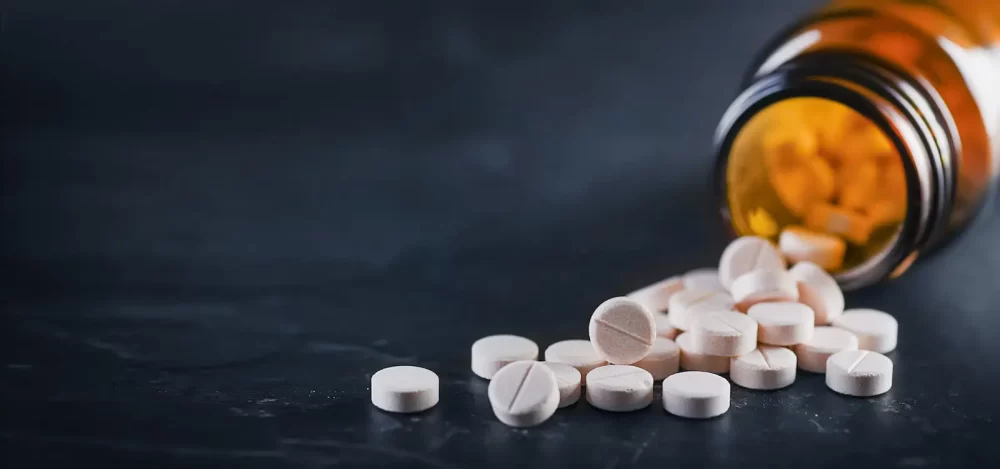Table of Contents
Founded in 1935 by Dr. Bob Smith and Bill Wilson, Alcoholics Anonymous (A.A.) is a worldwide organization for people who are committed to stopping abusing alcohol and remaining sober. With more than 2 million members and 123,000 groups worldwide, meetings can be found in nearly every city. The self-run model for A.A. relies on members actively participating in the meetings and helping others on their recovery journey. There is no discrimination on race, gender, or religious affiliation, nor are there any dues or fees for A.A. membership; the only requirement is that the alcoholic desires to be sober. Because A.A. is intended to benefit an alcoholic in recovery, there are principles and guidelines that, to be a successful program for long-term sobriety, an alcoholic is expected to adhere to, such as: working a 12-step program, having a sponsor, and attending regular meetings.
What are the 12-Steps and 12 Traditions of A.A.?
When participating in A.A. meetings, it is advised that the individual invest time reading from the Big Book of Alcoholics Anonymous. This book provides an in-depth explanation of alcoholism, how it impacts the alcoholic (as well as how it impacts the families of the alcoholic), inspiration through personal stories, and guidelines for recovery and maintaining long-term sobriety. The Big Book is advised not only for the alcoholic but also for the families of alcoholics, as it also will help families to recover from the disease of alcoholism.
Outlined in the Big Book are the 12-Steps (with further explanations of each step obtained within the book) and the 12 Traditions essential to walking the recovery journey. The 12-Steps are intended to help the alcoholic recover from alcoholism and prevent triggers from occurring in the future that could result in a relapse. The 12 steps of A.A. are:
- We admitted we were powerless over alcohol – that our lives had become unmanageable.
- Came to believe that a Power greater than ourselves could restore us to sanity.
- Made a decision to turn our will and our lives over to the care of God as we understood him.
- Made a searching and fearless moral inventory of ourselves.
- Admitted to God, to ourselves and to another human being the exact nature of our wrongs.
- We’re entirely ready to have God remove all these defects of character.
- Humbly asked Him to remove our shortcomings.
- Made a list of all persons we had harmed, and became willing to make amends to them all.
- Made direct amends to such people wherever possible, except when to do so would injure them or others.
- Continued to take personal inventory and when we were wrong promptly admitted it.
- Sought through prayer and meditation to improve our conscious contact with God as we understood Him, praying only for knowledge of His will for us and the power to carry that out.
- Having had a spiritual awakening as the result of these steps, we tried to carry this message to others and practice these principles in all our affairs.
The 12 Traditions were founded through experiences of what has been proven effective in helping others achieve and maintain sobriety. These 12 Traditions are as follows:
- Our common welfare should come first; personal recovery depends upon A.A. unity.
- For our group purpose, there is but one ultimate authority- a loving God as He may express Himself in our group conscience. Our leaders are but trusted servants; they do not govern.
- The only requirement for A.A. membership is a desire to stop drinking.
- Each group should be autonomous except in matters affecting other groups or A.A. as a whole.
- Each group has but one primary purpose- to carry its message to the alcoholic who still suffers.
- An A.A. group ought never endorse, finance, or lend the A.A. name to any related facility or outside enterprise, lest problems of money, property, and prestige divert us from our primary purpose.
- Every A.A. group ought to be fully self-supporting, declining outside contributions.
- Alcoholics Anonymous should remain forever nonprofessional, but our service centers may employ special workers.
- A.A., as such, ought never be organized; but we may create service boards or committees directly responsible to those they serve.
- Alcoholics Anonymous has no opinion on outside issues; hence the A.A. name ought never be drawn into public controversy.
- Our public relations policy is based on attraction rather than promotion; we need always maintain personal anonymity at the level of press, radio, and films.
- Anonymity is the spiritual foundation of all our Traditions, ever reminding us to place principles before personalities.
What is Sponsorship, and Why is it Important to Recovery from Addiction?
When one starts attending meetings, there can be confusion and apprehensiveness about how to walk on the path of sobriety. Although meetings can provide valuable knowledge, insight, and solutions, this alone is not enough for an alcoholic. To maintain long-term sobriety, one will need constant, close support from someone who is maintaining their own sobriety through A.A. and has worked the 12-step program with a sponsor themselves. Even if one is hesitant to “bother” someone by asking them to become their sponsor, it is advised that one does not delay in seeking someone that can help guide them on their path of sobriety. When someone raises their hand in a meeting to be a sponsor to others, they are doing so because they value their own sobriety and helping other recovering alcoholics. Even if there is uneasiness with asking, it is important to remember that sponsorship is vital to recovery.
Sponsorship provides the friendship, guidance, and support needed to transition from addiction to sobriety and helps one maintain sobriety in the long run. Furthermore, there is no requirement to stay with one sponsor if finding another sponsor will be helpful in someone’s growth. One does not need to agree with everything a sponsor says, either. However, keeping an open mind and humbling oneself to a person’s suggestions can benefit recovery.
How to Find an A.A. Meeting Near You
To find an A.A. meeting near you, you can use an A.A. online locator or search engine to find results. As many groups are available, trying out different groups will enable you to decide which meetings work best for you, your growth, and your schedule. It is advised to attend at least 2-3 meetings a week and select one particular meeting a week that you will attend weekly to get to know the members well so they can hold you accountable for your recovery.
Furthermore, attending an inpatient/outpatient treatment that specializes in 12-Step programs and can help you find meetings and a sponsor while in recovery is recommended.
Don’t delay seeking help for alcoholism. At Infinite Recovery, we can discuss your options and help you find the path to sobriety. Contact us today to get started.
Sources:
Infinite Recovery has strict sourcing guidelines and relies on peer-reviewed studies, academic research institutions, and medical associations for our references. We avoid using tertiary references as our sources. You can learn more about how we source our references by reading our editorial guidelines and medical review policy.
- Alcoholics Anonymous. A.A. Around the World | Alcoholics Anonymous. Accessed July 4, 2022. https://www.aa.org/aa-around-the-world
- Wilson B. Alcoholics Anonymous: The Big Book. Courier Dover Publications; 2019.
















